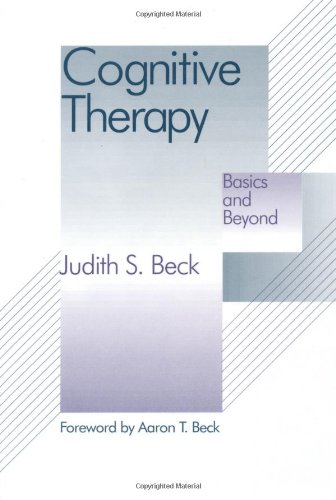A sick person recently pointed out to me that most of the workbooks and worksheets that they find for addiction recovery is geared toward the very starting of recovery. This sick person was looking for an exercise that could help him enlarge further in his ongoing recovery. This is what I came up with and am happy to share with you.
Continuing recovery Lifestyle Worksheet
Therapy Worksheets
You have been working on the first steps and have looked at the damage in all major areas of your life. You have been clean and sober for awhile now. You feel better physically and emotionally. Your life is changing for the better. Use this worksheet to collate where your enlarge and areas needing work. This self-assessment will help you to identify your strengths and areas needing work for your chronic increase in recovery. Apply the following questions to each of the major life areas below. Use separate paper to collate yourself and write about how you are doing on each item.
Cognitive Therapy: Basics and Beyond Best
Rate This Product :

Cognitive Therapy: Basics and Beyond Overview
Written in a clear, step-by-step style, this ideal teaching text makes cognitive therapy immediately accessible to students as well as to professionals new to cognitive therapy. The author uses a single case example to demonstrate how to conceptualize patients according to the cognitive model, plan treatment, conduct an initial session, structure therapy within and across sessions, incorporate homework, and use cognitive and behavioral techniques. Instructors will appreciate the book's emphasis on formulating cases, making decisions within therapy sessions, diagnosing problems in therapy, and using advanced techniques to modify core beliefs and underlying assumptions. Transcripts in every chapter richly illustrate the narrative.
Customer Reviews
*** Product Information and Prices Stored: Feb 06, 2012 04:26:38
Questions:
1. How is your recovery and abstinence from alcohol and other drugs affecting these areas in your life currently?
2. What changes have you noticed in these areas?
3. What changes have others noticed?
4. Which areas need focus and more work?
5. What kinds of changes do you want to make?
1. Partner/spouse connection
a. The level of emotionality you contact with your spouse/partner.
b. How you deal with emotions and conflicts with your spouse/partner.
c. The level of gift that you make to the connection or the family.
l. Chores
2. Finances
3. Fun/entertainment/joy
d. Your potential to be supportive of your spouse/partner
e. Your potential to sometimes put others' needs ahead of yours
f. Your patience and tolerance over annoyances
g. Romantic gestures/activities, dates, and showing of affection
2. Money and finances
a. The level of accountability or follow-through in financial goals
b. Being proactive in production decisions about how money is spent and planning ahead c. Consulting with spouse/partner and working as a team financially d. production financial amends
3. Balancing recovery, home, work, and other priorities
a. Maintaining structure or a agenda that assists with prioritizing, stress management, and goals
b. Practicing assertiveness and being able to say "no" to requests that would lead to imbalance or more unmanaged stress.
c. Consulting with spouse/partner about conflicting demands and qoute solving priorities together
d. Communicating your needs and being responsible for your recovery. Work responsibilities a. Maintaining positive, wholesome attitude about work b. Managing stress as it occurs and replacing worry with pro-active qoute solving
4. Job performance
a. inevitable relationships with co-workers and boss.
b. Willingness to hear and reconsider feedback.
c. Dependability, punctuality, and focus
5. Friendships and other relationships
a. Willingness to spend time with in-laws and other relatives
b. production amends to family members
c. Dealing with conflicts as they occur in a wholesome manner
d. Communicating your needs. E. Taking others' feelings into account.
f. Practicing patience and tolerance of others.
6. Spirituality
a. Maintaining a helpful connection to spiritual advisors
b. Maintaining helpful routines
c. Applying an attitude of gratitude to your life
d. Being of service to others.
Addiction and rescue - The persisting rescue Lifestyle WorksheetDr. Aaron Beck lectures on CBT for Military Personnel Video Clips. Duration : 25.55 Mins.www.beckinstitute.org This experiential workshop covers the basics of cognitive behavior therapy for mental health professionals who treat Active Duty and Veteran Military and their families. Under the direction of Judith S. Beck, PhD and David Riggs, PhD, participants will learn about the special characteristics and culture of this population and how to adapt CBT accordingly, with an emphasis on the treatment of depression and suicidality. Participants will also learn how to develop an individualized conceptualization of the client based on the Cognitive Model, plan treatment based on this conceptualization, develop a sound therapeutic alliance, structure sessions, and use CBT interventions. Techniques will be illustrated through roleplays and worksheets. This video is from a question and answer session with Dr. Aaron Beck.
Tags: military, cbt, cognitive-behavioral-therapy, army, soldier-suicide-prevention, cognitive-therapy, cognitive-behavior-therapy, cognitive-restructuring, evidenced-based-treatment, psychotherapy, psychology, psychiatry, therapy, PTSD, post-traumatic-stress-disorder, depression, suicide, anxiety




No comments:
Post a Comment